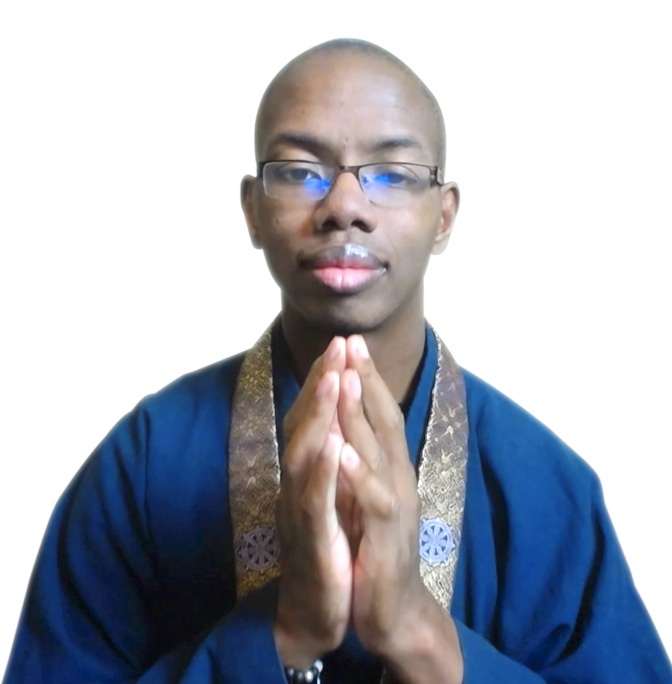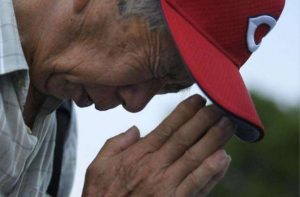Karma is a Sanskrit word that translates to “action.” A simple way to understand karma is to break it down into moments of cause and effect. For example, if someone drinks a large cup of tea in the morning, that’s a cause. And the effect is that they’ll need to visit the restroom at some point in the afternoon. Thus, if one is careful in studying the karma of their actions (i.e. the causes and effects), one is able to make better decisions over time, reducing suffering for oneself and others.
However, it’s important to note that it is not only individuals who have karma. Plants, animals, and organizations are also subject to karma. And the interplay of cause and effect between people and their environments results in a karmic web that is impossible to completely untangle.
For example, imagine if we purchase a house and there is a tree in the backyard that was planted by the previous owner. It would be very difficult to learn all of the karmic inputs that caused them to plant the tree. However, we still need to deal with the effect of raking the leaves that fall from it in the autumn!

Thus, we are in a constant state of dependent origination with the universe; simultaneously creating causes that effect the world around us while also being affected by the karmic inputs of others. This raises some interesting questions around the concept of free will.
Are we making choices based on our own cognition, or are we automatons that move and act based on the karma of the world around us? From the Buddhist perspective, the answer to this question is: “Yes!”
Each of us is dealt a hand of cards at birth that is out of our control. We don’t choose our parents, our country of origin, our date of birth, etc. Those decisions are made for us based on a chain of causes and effects that go back to the beginning of time. However, now that we’re here, living as conscious human beings, we can choose how to play our hand at the poker table of life.
Put another way, we can understand the relationship between karma and free will by imagining ourselves as passengers on a train. The engineer’s car is closed to the public, so we can’t speed up or slow down the train. Similarly, we can’t get off and lay new tracks. There is a part of our life that is out of our control.

However, we can exert our free will within the confines of the train. We can choose which train car we want to ride in, and how we interact with the other passengers there. By taking responsibility for our personal karma we are able to find freedom despite the fact that our destiny is partially controlled by outside forces.
That’s why Buddhism places a large focus on ethical training. When we practice Right Speech, Right Action, and Right Livelihood, as they are taught in the Noble Eightfold Path, we engage in actions that allow us to maximize our personal control over our lives while still ending suffering for ourselves and others. In this way, a good understanding of karma is important in the exercise of our free will.
One thing that hurts our ability to exercise free will and to not be subservient to outside karmic forces is desire. As our desire for a thing (money, status, sex, etc.) grows, it clouds our mind. Thus, we are unable to see the karmic consequences of our actions.
An example of this can be seen in a child who eats their ice cream too quickly and they get a brain freeze. They are so wrapped up in their desire for dessert that they forget to eat slowly. They suffer as a result. Another instance of desire clouding personal judgement would be a man who is so overtaken by greed that he robs a bank and ends up going to jail.
To an outside observer, the karmic consequences of these actions might appear obvious. However, when we allow desire to take over our minds, we are unable to think clearly. All we see is the object of our craving, and we lose the ability to see anything else. This is why the practices of Right Effort, Right Mindfulness, and Right Concentration, which make up the final tenets of the Noble Eightfold Path are so important.
When we engage in Right Mindfulness and Right Concentration, we turn our attention inward and study the content of our brains. Like a detective, we search for clues and become more attuned to how we react to various outside stimuli. The end result is that we create space between our actions and our desires. Craving arises in our brain, but we notice it before we do something rash. Thus, instead of mindlessly giving in to every flight of fancy that we experience, we make decisions based on morality and common sense.
Of course, we’re human and that means that we will inevitably make mistakes. But that’s why Right Effort is part of the equation. When we notice that we’ve slipped back into old habits and unhealthy behaviors, Right Effort provides the impetus for us to try again!
Simply put, karma is cause and effect. Buddhism teaches that everything in the universe is subject to karma, however, it’s not always easy to see the karmic inputs that have influence over our lives. That said, through diligent practice and adherence to the Noble Eightfold Path, we can become adept at seeing which items are within our control and make decisions accordingly. This self-reflection is important because without it we become mindless cogs in the machinery of the universe; acting on our base desires without thinking through our actions.
Namu Amida Butsu












